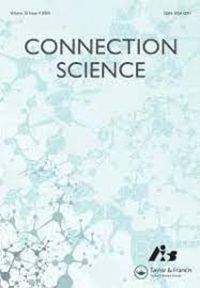UAV mission scheduling with completion time, flight distance, and resource consumption constraints
IF 3.4
4区 计算机科学
Q2 COMPUTER SCIENCE, ARTIFICIAL INTELLIGENCE
引用次数: 0
Abstract
Unmanned aerial vehicles (UAVs) are widely used in various military and civilian applications. UAV mission scheduling is a key issue in UAV applications and a central topic in UAV research. UAV task scheduling should include several constraints into consideration, such as completion time constraint, flight distance constraint, and resource consumption constraint. Furthermore, UAV task scheduling should be studied within the traditional framework of combinatorial optimisation. In this paper, we consider optimal mission scheduling for heterogeneous UAVs with completion time, flight distance, and resource consumption constraints. The contributions of the paper are summarised as follows. We define two combinatorial optimisation problems, namely, the NFTM (number of finished tasks maximisation) problem and the RFTM (reward of finished tasks maximisation) problem. We construct an algorithmic framework for both NFTM and RFTM problems, so that our heuristic algorithms (four for NFTM and two for RFTM) can be presented in a unified way. We derive upper bounds for optimal solutions, so that our heuristic solutions can be compared with optimal solutions. We experimentally evaluate the performance of our heuristic algorithms. To the best of our knowledge, this is the first paper studying UAV mission scheduling with time, distance, and resource constraints as combinatorial optimisation problems.具有完成时间、飞行距离和资源消耗约束的无人机任务调度
无人驾驶飞行器(uav)广泛应用于各种军事和民用领域。无人机任务调度是无人机应用中的关键问题,也是无人机研究的中心课题。无人机任务调度需要考虑完成时间约束、飞行距离约束和资源消耗约束等约束条件。此外,无人机任务调度还应在传统的组合优化框架下进行研究。研究了具有完成时间、飞行距离和资源消耗约束的异构无人机任务调度问题。本文的贡献总结如下。我们定义了两个组合优化问题,即NFTM(完成任务数量最大化)问题和RFTM(完成任务奖励最大化)问题。我们为NFTM和RFTM问题构建了一个算法框架,以便我们的启发式算法(NFTM的四个算法和RFTM的两个算法)可以统一地呈现。我们推导了最优解的上界,使我们的启发式解可以与最优解进行比较。我们通过实验评估我们的启发式算法的性能。据我们所知,这是第一篇将时间、距离和资源约束作为组合优化问题研究无人机任务调度的论文。
本文章由计算机程序翻译,如有差异,请以英文原文为准。
求助全文
约1分钟内获得全文
求助全文
来源期刊

Connection Science
工程技术-计算机:理论方法
CiteScore
6.50
自引率
39.60%
发文量
94
审稿时长
3 months
期刊介绍:
Connection Science is an interdisciplinary journal dedicated to exploring the convergence of the analytic and synthetic sciences, including neuroscience, computational modelling, artificial intelligence, machine learning, deep learning, Database, Big Data, quantum computing, Blockchain, Zero-Knowledge, Internet of Things, Cybersecurity, and parallel and distributed computing.
A strong focus is on the articles arising from connectionist, probabilistic, dynamical, or evolutionary approaches in aspects of Computer Science, applied applications, and systems-level computational subjects that seek to understand models in science and engineering.
 求助内容:
求助内容: 应助结果提醒方式:
应助结果提醒方式:


